Nigeria, like many other countries of the world, witnessed different eventful experiences that shaped the year 2021.
As the year fades away in some hours, EBERE NDUKWU writes on 10 most significant political events that took place in Nigeria during the year.
1. Widespread insecurity

The year 2021 will always be remembered as a year Nigeria recorded a high level of insecurity across all its geopolitical zones.
In the North-West, it was a year of bandits whose reign of terror in the region could not be curtailed by the Nigerian security forces with all their might. Activities of the criminals in Zamfara, Sokoto, Kaduna, Katsina saw the killings and maiming of thousands of people, destruction of millions of Naira worth properties, kidnap of school children, women and men among others.
In the North-East, the fears of Boko Haram and ISWAP terrorists persisted in the region. Though the activities of the insurgents reduced significantly during the year, however, many citizens and security forces lost their lives due to the never-ending evils of the terrorists.
In the North-Central, insecurity was also rampant. In states like Niger, Benue, Kogi, Nasarawa and Plateau, activities of bandits and killer herdsmen were commonplace. Many were killed and maimed. In Niger, bandits reigned freely, kidnapping with ease school children, women and girls as well as men.
In the South-West, the evils of criminal herdsmen was not only a threat to the region but also to Nigeria as a country. This was as activities of the herdsmen, apparently generated bad bloods and saw people like Sunday Adeyemo, known as Sunday Igboho, and some others demanding for an Independent Yoruba Nation from Nigeria.
In the South-East, the insecurity was unprecedented. Aside from the events of the Nigerian Civil War, the South-East never saw itself in a perplexed state as it did in 2021.
From the Indigenous People of Biafra (IPOB) creation of a military arm, the Eastern Security Network (ESN), to declaration of every Monday as sit-at-home in the region, as well as the activities of the unknown gunmen, the South-East was a shadow of itself.
In the South-South activities of cultists, sea pirates, kidnappers remained a serious threat.
2. Rise in foreign debts
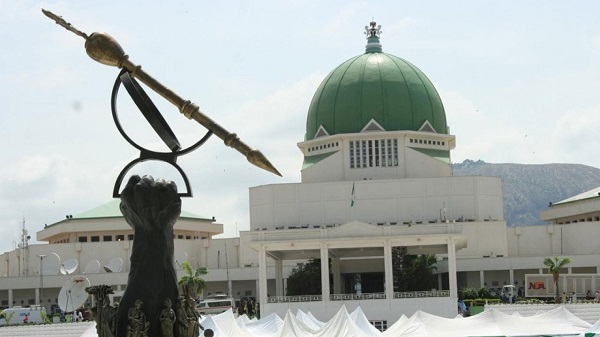
Amid widespread public outcry, President Muhammadu Buhari’s seeming penchant for borrowing foreign loans was on the high in 2021.
On several occasions, he requested the National Assembly to approve his foreign loans demands, and the lawmakers obliged with ease.
Though the President said the loans were meant for infrastructural development, the borrowing saw Nigerian foreign debts increased, According to some experts, the debts may jeopardise the nation’s future and possibly mortgage the future generations.
3. Food price increase
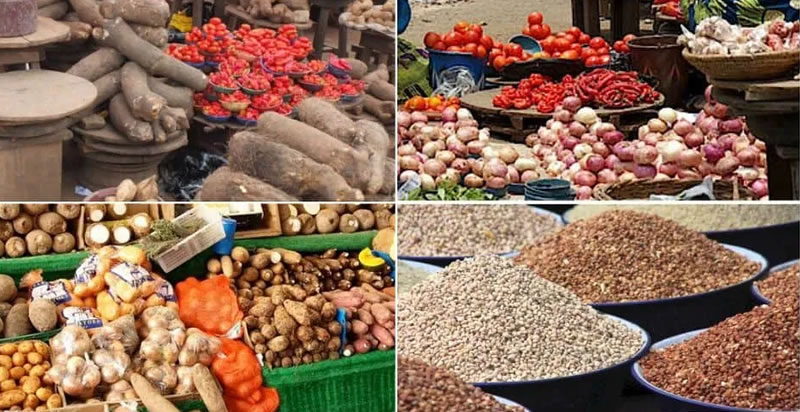
As2021 passes away in a matter of hours, one thing Nigerians will always remember is how prices of food and commodity soared during the year.
With Naira free fall to the US Dollars, which saw the Nigerian currency exchange at over N500 to a Dollar, the increase in prices of goods witnessed in 2021 is one Nigerians will continue to rue. One can only hope it does not continue in the coming year 2022.
4. Nnamdi Kanu’s repatriation and detention
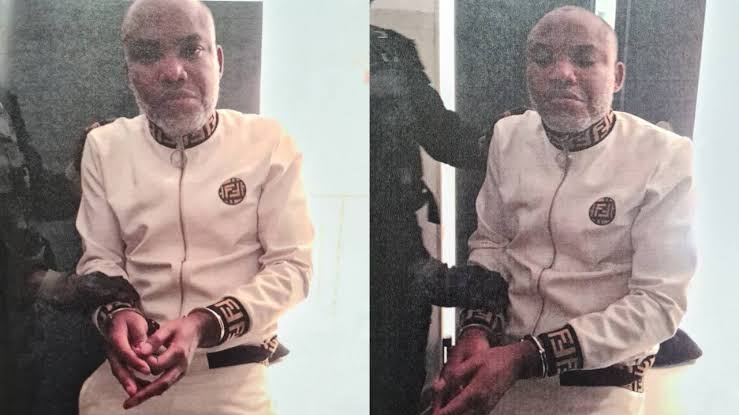
After jumping bail in 2017 following raid on his father’s home in Abia State by Nigerian soldiers, the leader of the seperatist group, IPOB, Nnamdi Kanu, was arrested and brought back from Kenya to continue his treason trial.
His questionable and controversial arrest by the operatives of the Nigerian Intelligence Agency (NIA) in Kenya and detention in the Department of State Security (DSS) facility in Abuja, is believed to be the direct cause of the Monday sit-at-home order in the South-East, which is adversely affecting the economy of the region.
5. Gale of political harlotry
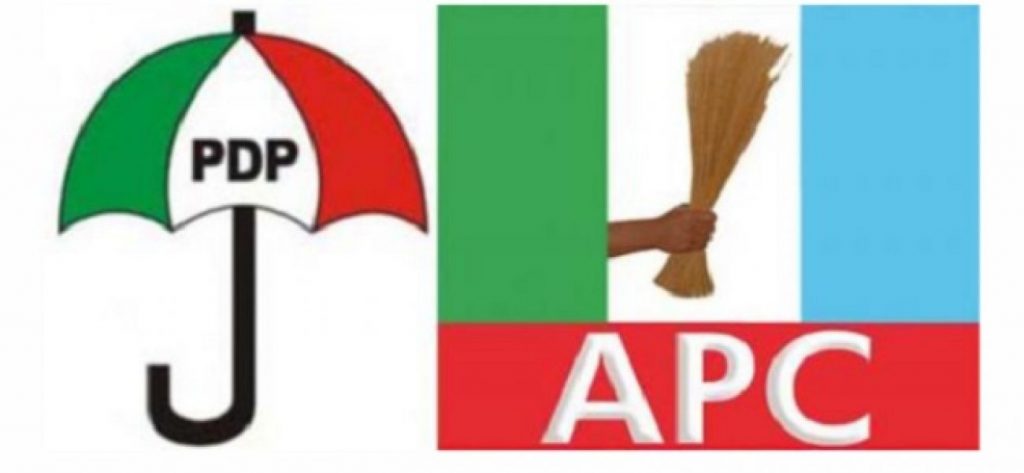
The year recorded mass defection of politicians from one political party to the other, especially from the two major parties, the Peoples Democratic Party (PDP) and the All Progressives Congress (APC).
Some of the notable politicians who played the ‘harlotry’ during the year include a fierce critic of Buhari and outspoken chieftain of the PDP, Femi Fani-Kayode, who joined the APC; a former governor of Ogun State, Otunba Gbenga Daniel, from PDP to APC; the Governor of Cross River State, Ben Ayade from PDP to APC; Zamfara State Governor Bello Matawalle from PDP to APC.
Other defections include Senator Stella Oduah, from PDP to APC: Lagos4Lagos Movement, a faction of the ruling APC in Lagos, led by Olajide Adediran, popularly known as Jando, mass defection to the PDP.
6. Appointment of new service chiefs
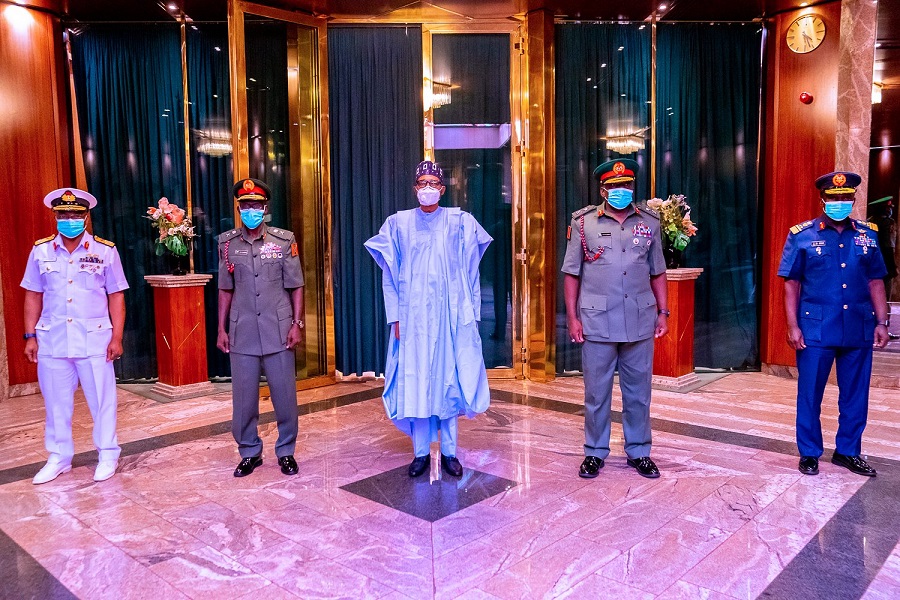
The year saw President Buhari finally heeding to the demands of Nigerians by replacing his service chiefs.
On January 26, Leo Irabor was named the new Chief of Defence Staff, Ibrahim Attahiru was named as the commander of the Army, A. Z. Gambo as the commander of the Navy, and I. O. Amao, the commander of the Air Force.
Attahiru later died in an air crash in Kaduna State in May, with ten other officers, including the plane’s crew.
He was replaced by Farouk Yahaya.
7. Twitter’s suspension
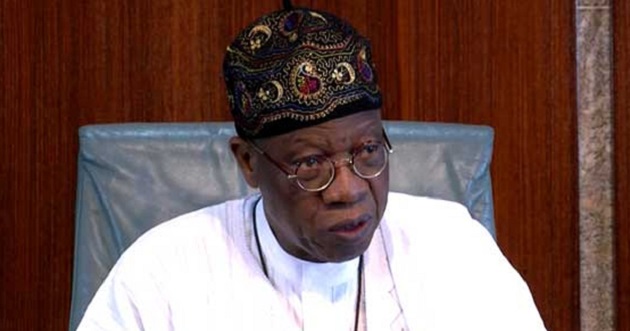
Among events of note in 2021 was the suspension of Twitter on June 4, by the Buhari’s government.
Announcing the development, the Information and Culture Minister, Lai Mohammed said that Twitter’s operations in Nigeria would be suspended indefinitely.
He accused the foreign company of engaging in activities that are capable of undermining Nigeria’s corporate existence.
The suspension came on June 2, a few days after the microblogging platform removed one of Buhari’s tweets and temporarily suspends his account.
Buhari had in the deleted tweet accused some people from South-East of Nigeria of “misbehaving” and threatened to treat them in “the language they understand”. In the tweet, the president spoke about the civil war experience and threatened to deal with those “bent on destroying” Nigeria through “insurrection.”
8. Anambra Election
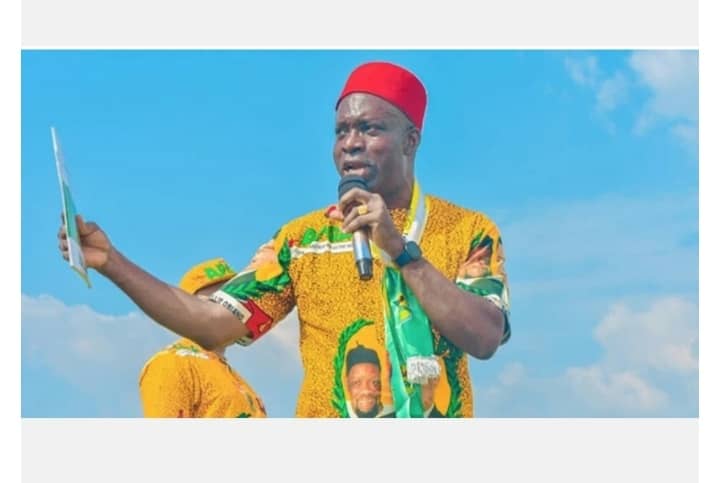
The Anambra State election was remarkable because, after all the tension over the insecurity in South-East, the election ended up as one of the most peaceful in the country.
It was won by the candidate of the All Progressives Grand Alliance (APGA), Prof Charles Soludo, an economist and a former governor of the Central Bank of Nigeria (CBN).
9. Sothern govs 2023 presidency demand
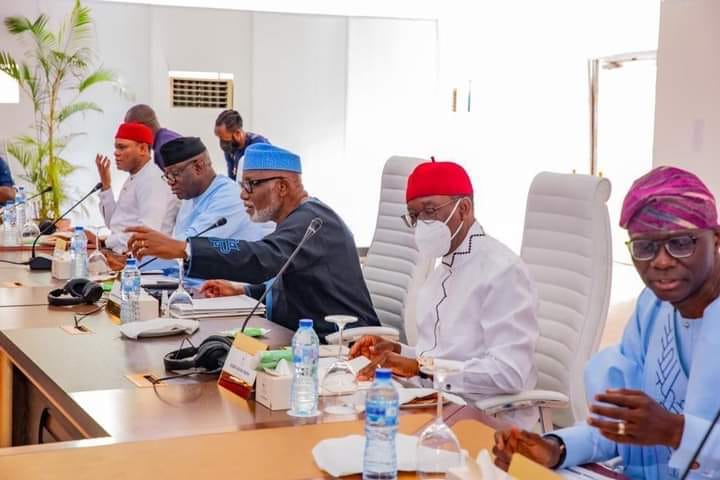
The demand by the Southern Governors Forum, led by Ondo State Governor Rotimi Akeredolu, was obviously one of the major political events in Nigeria in 2021.
The governors and political leaders from the entire South made history when they held a meeting in Asaba, the Delta State capital, demanding that the 2023 presidency be zoned to the South. It was the first time since the return of Democracy in 1999 that the governors of the South would have such a gathering and agreement.
Their demand was fiercely kicked against by their counterpart in the North. The Northern Governors Forum and political leaders from the region described the southern governors’ demand as being unconstitutional.
10. Buhari’s refusal to sign Electoral Act Bill
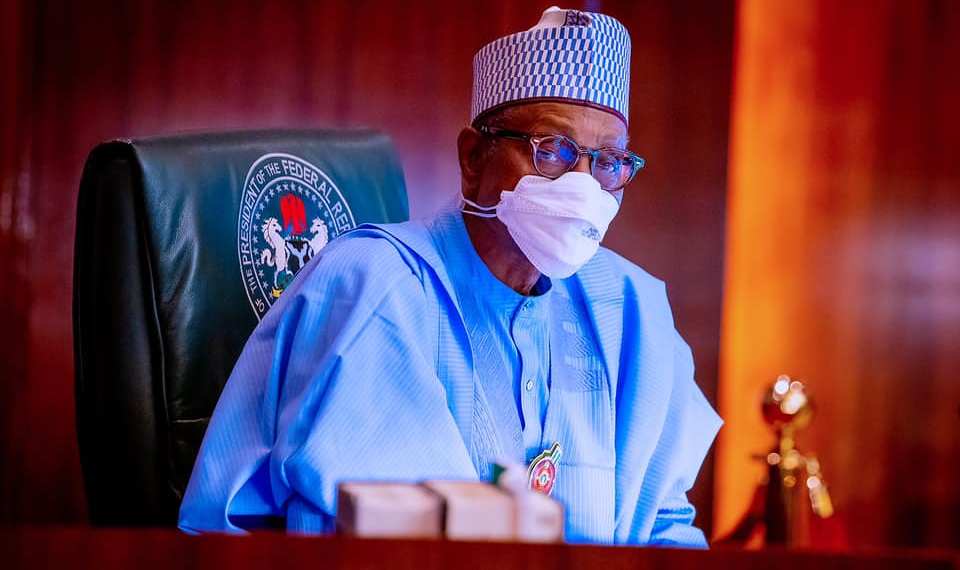
Buhari’s refusal to give his assent to the Electoral Act Amendment Bill, was another notable event in 2021.
Returning the document to the National Assembly, he asked them to review the section that death with direct primary elections.
Meanwhile, the year 2021 did not end without passing away with notable politicians and prominent Nigerians.
Those who died in the year include Junaid Mohammed, a fierce critic of Buhari and a member of House of Representatives in the Second Republic; Joseph Wayas, Nigeria’s third Senate President during the Nigerian Second Republic (1979–1983); Ibrahim Mantu, a former Deputy Senate President; Ahmed Joda, former federal Permanent Secretary who headed the Muhammadu Buhari presidential transition in 2015; Obadiah Mailafia, former Deputy Governor of Central Bank of Nigeria (CBN) and a former presidential candidate of the African Democratic Congress (ADC); Yinka Odumakin, Afenifere Chieftain and spokesman; Ahmed Gulak, a chieftain of the All Progressives Congress (APC) and a former political adviser to President Goodluck Jonathan.
Other are Capt. Idahosa Okunbo, popularly known as Captain Hosa, billionaire businessman; former Deputy Governor of Kaduna State, Arc. Barnabas Bala Bantex; Rear Admiral Ndubuisi Kanu, former National Democratic Coalition (NADECO) chieftain and former Military Administrator of Imo and Lagos states; Aisha Jummai Al-Hassan, a former Minister of Women Affairs of Nigeria, popularly known as Mama Taraba and several others.